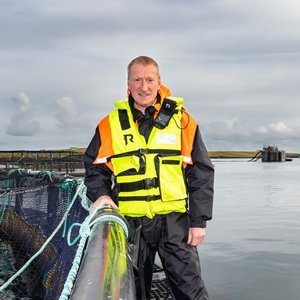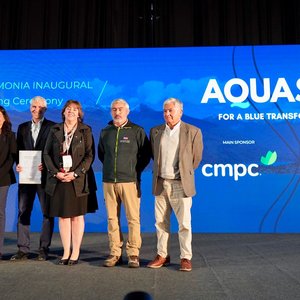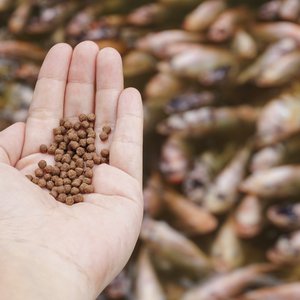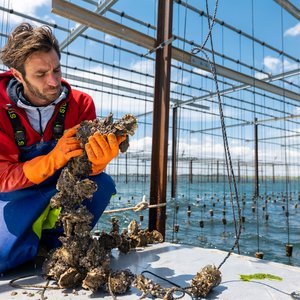Pakistan, with a population of nearly 200 million people, it is a developing country that has long relied on fish from the ocean for protein, but as this becomes more challenging, farm-raised fish has become a promising alternative.
“There are a lot of fishing villages here, but worldwide we’re starting to get less fish from the sea,” said Carlos Campabadal, faculty member in the Department of Grain Science and Industry at Kansas State University. “Raising fish is a good option to bring that source of protein back for the local market.”
Since 2011, Campabadahe and others at K-State have been involved with the American Soybean Association’s World Initiative for Soy in Human Health, or WISHH, project called FEEDing Pakistan. The project’s aim is to teach Pakistanis about the benefits of using soy as a feed ingredient for farm-raised fish.
The first phase of the project ended last year, and the US Department of Agriculture, which has funded FEEDing Pakistan, has just announced approval of the project’s second phase.
Phase I assisted nearly 2,000 Pakistani fish farmers to increase the market value of the country’s tilapia production, which went from zero to an estimated 450 million rupees, or USD 4.59 million in 2014, according to Mike Woolverton, a partner in AgriMarkets International and a subcontractor for K-State.
The project has enabled Pakistan’s fish farmers to understand how soybean meal provides excellent nutrition for their fish because of its good amino acid profile, and to appreciate that it is a much cheaper option than fishmeal, which is not always available in the local market.
“The majority of the fish farmers were just starting, so many of them actually grew to have bigger farms,” said Campabadal. “We not only helped the farmers grow, but we also helped the industry grow. You need somebody to produce the feed and help buy all the ingredients. We connected with the local industry to make extruded pellets, the typical way you feed tilapia fish.”
Project participants were hosted in the US every year for the first three years of the project by partners including the University of Arizona, where they learnt about marine biology and management, and the Kansas Soybean Commission, which provided funding for programs and training, and facilitated collaboration between Kansas and Pakistani farmers.
An additional benefit of the FEEDing Pakistan program is increased export opportunities for US soybean farmers.
The focus of Phase II is to provide the farmers with more technical knowledge to help them expand their operations and to give them the opportunity to learn about the whole soybean supply chain.
Campabadal sees opportunity in expanding successful projects like FEEDing Pakistan to help other areas of the world.
Source: High Plains/MidWest Journal. Read the full article here.










